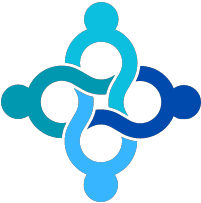Salesforce Online Training
Our Company is one of the best training institute in leading IT online training. We provide the best Salesforce Online Training with our highly professional real-time trainers. Running Salesforce results in dramatically improved performance, simplified administration and streamlined IT landscape resulting in lowering total cost of ownership. Our Company also does corporate training and help them to train their employees.
Salesforce Online TrainingIntroduction to CRM:
- Coffee
- Why CRM?
- Introduction to Cloud Computing & Salesforce.com
- Cloud Computing – Overview
- What is Software-as-a-Service (SAAS)?
- What is Platform-as-a-Service (PAAS)?
- What is Infrastructure-as-a-Service (IAAS)?
What is Salesforce.com?
- Salesforce.com CRM Editions
- Salesforce Architecture – Cloud Computing is a Better Model Multi-tenant
- Salesforce Editions / Pricing
Salesforce.com Navigation – Overview:
- Salesforce Certifications
- Certified Force.com Developer(401)
- Certified Administration (201)
- Certified Administration (201)
Database Introduction:
- Database Model – Object Creation
- Salesforce Building Blocks
- Standard Objects
- Create custom Objects
- CRM functionality in Salesforce and use of standard objects
- Custom Objects Vs. Standard Objects
- Create custom Fields
- Create custom Tabs
Types of Tab:
- Standard Objects – Account, Contacts, Leads, Campaigns, Opportunities etc.,
- Custom object Tabs
- Web Tabs
- Visual force Tabs
Custom Application:
- Limitations
- Field Creation and its Relationships a. Different Data types
- Standard Data types :
- Text, Email, Number, Currency, URL, Text Area.
- Storage Limitations
- Read only Data types:
- Auto Number, Formula and Rollup summary
- Rollup summary Operations
- Sum(), Min(), Max() and Count
Relational Data types:
- Lookup Vs. Master – Detail Relationship
- Limitations
- Required, External Id, Default Value and Unique fields
- Salesforce Application elements: Home Page, Tabs, Tab Home Pages, Detail Page, Side Bar, Apps, Record
Page Layouts:
- Defining Page layouts
- Field order changes
- Adding custom buttons and links
- Defining required and read only fields
- Adding related list
Record Types:
- To create and maintain record types for your organization.
- Display different page layouts and pick list values based on record types.
- Uses of Record Types
Field Dependencies:
- Controlling field/Dependent field?
- Making dependent pick list fields
- Limitations
Validation Rules:
- Defining Salesforce Data Validation
- Creating Custom Validation Rules
- Validation Vs. Trigger
Workflow rules:
- Define workflow
- Create Email template
- Set up workflow rules
- Set up workflow actions
Workflow Approval process:
- Plan approvals using workflow
- Use the approval wizard – standard vs. jump start
- Create workflow approvals
Email Templates:
- Email Templates – Sending Single emails and Mass emails.
- Types of Templates – HTML (Using Letter Head) , Custom HTML
(without using letter head), Visual force Email Templates
Data Management:
- Import Wizard Vs Data Loader
- Importing Overview
- Exporting Overview
- Import custom object records using the Data Loader
- Use mass delete
- Use storage
Personal Setup:
- Managing Personal Information
- Password Reset
- User Management Overview
- Roles, Users, Profiles & Sharing
Users, Roles and Profiles:
- Creating Users
- User Licenses Overview
- Understanding Record Ownership and Access
- Role Hierarchy
- Profiles
- Overview and different profiles
- User Permissions
Security:
- Managing the Users
- Set Organization Wide Defaults (OWD)
- Object-level Security
- Field-level Security
- Record-level Security
- Sharing Rules
- Define Sharing rules
- Discuss about types of sharing rules
Reports & Dashboards
AppExchange:
- Installing an App
- Uninstalling an App
Development
- Introduction to oops concepts
MVC Architecture:
- Model
- View
- Controller
Apex Programming Overview:
- CSS Introduction
JavaScript Introduction:
- Internal
- External
Static Resources:
- Adding External CSS files to the static resources
- Adding External JavaScript files to the static resources
Apex Class Creation – Calling
- Defining Class
- Access Specifiers
- Method Declarations
- Debugging results
- Naming conventions & Code Commenting
Data Types:
- Primitives
- Collections (List, Set and Map)
- Subject
Controllers:
Standard Controller
- Record setvar
Custom Controller
- SOQL Query – Query data with SOQL and place them on Pages
- Custom Save Functionality
- With Sharing class Vs. without Sharing Class
- User mode Execution Vs. System mode Execution
Extensions
- Save – Standard controller with extension sample
Wrapper Classes:
- Display multi object data
- Adding check boxes to the data and perform related operations
View State:
- Inner Queries & Relational Queries
Triggers:
- Trigger Events
- Trigger Overview
- Defining Triggers in Salesforce
Trigger Context variables
Ajax Components & its related components:
- Action Function
- Action Support
- Action Region
- Action Pollar
- Action Status
- Rerender
- Render
- Facet
- Outputpanel
Packages:
- Package Overview
- Defining packages
- Package Types
- Managed
- Unmanaged
- Managed Vs Unmanaged Packages
Force.com Sites – Public website Building:
- Building public websites for the external Users
Batch Apex:
- Batch apex Use and its Methods
Scheduling Apex:
- Scheduling apex Use and its Methods
- Limitations
Different sandboxes:
- Sandbox Vs. Production Environments
- Change sets
- Limitations
- Text, Email, Number, Currency, URL, Text Area.
- Storage Limitations
- Auto Number, Formula and Rollup summary
- Rollup summary Operations
- Sum(), Min(), Max() and Count
(without using letter head), Visual force Email Templates
- Overview and different profiles
- User Permissions
- Define Sharing rules
- Discuss about types of sharing rules
- Managed
- Unmanaged
